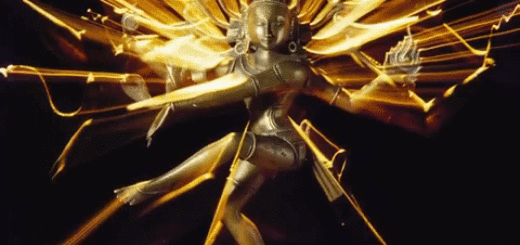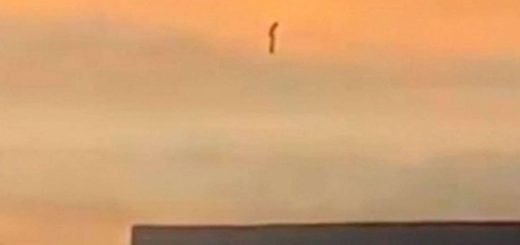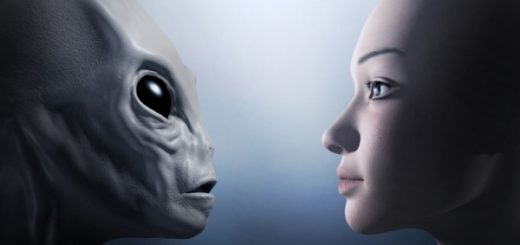Your life has changed for the worse, and admitting it can help you cope Nyadol Nyuon

A sense of perspective is important, but even the luckiest among us will be affected by the coronavirus – and it’s OK to say so
It is possible that the first foreign words I learned were Kalashnikov (better known as the AK-47) and Antonov. They signify what it means to be born in the midst of a war.
The Kalashnikov is infamous across the world. The Antonov was Khartoum’s deadliest weapon during the war with the country that is now known as South Sudan. The Sudan airforce turned the Russian-made plane into an “angel” of death, spitting fire from the skies. The plane would carry out indiscriminate aerial bombings that cut down trees, demolished buildings, and disfigured and killed people. From the children to the chickens, we became familiar with the cries of the Antonov.
The chickens, my mother said, sounded the first alarm that danger was approaching. They became restless, clucking noisily, flapping their wings and running aimlessly. I knew then, mum stressed, it was time. “I’ll begin herding the children into the foxholes.” Foxholes were deep holes in the ground to provide protection from the aerial bombings. The one we had in our compound was covered with wood and iron sheets for extra protection. But it was never a complete protection. If the bomb landed close to the foxhole, it would bury everyone in it alive. If it landed on top of it, that was it: “There was nothing left to bury.”
I thought I was coping in isolation but this week something in me snapped
Read more
There was no warning, beside the chickens, of
There was no warning, beside the chickens, of when the Antonov came. You lived with the frightening certainty that it would come but didn’t know when or the destruction it would leave behind. That sense of uncertainty and unease is the essence of the experience of war and displacement. Most refugees of war-torn South Sudan woke up one day and found their lives changed forever. And over time, they watched the abnormal becoming normal: families torn apart and eventually becoming strangers; parents losing children too young to die, or watching them slowly and pitifully wither away in refugee camps; and gradually, after fleeing from one country to another, forgetting the feeling of home.
Until recently, many people living here in Australia could not imagine how life can change so quickly. How life can go from normal to fighting over toilet paper.
Now that we are faced with a world that has changed drastically in a short period of time – just like wars abruptly uproot lives – I wonder if people are comparing their somewhat more challenging, less comfortable circumstances with those whose lives are very much harder and more frightening. Perhaps, when faced with a level of pain, we are better able to value our privilege. It is also helpful to learn from others and from history. To know that, in comparison, ours is not the greatest suffering. That history repeats itself and far worse has happened. However, as individuals, we experience events immediately and personally. For people who have lost, and those who will lose, a loved one to the coronavirus, no amount of contextualising will make it easier to bear. It will be devastatingly personal. Mark Twain wrote that: “Nothing that grieves us can be called little: by the eternal laws of proportion a child’s loss of a doll and a king’s loss of a crown are events of the same size.”
Advertisement
Keeping in mind both the personal and the contextual during this pandemic can be beneficial, as experts sound the alarm about the emotional footprint this virus will leave behind. That speaks to the challenge still ahead and the work many, if not all, of us will have to undertake to find meaning and value while the normal things we relied on, like having a job and easy connection to family and friends, are no longer guaranteed. To balance the global and the personal requires acceptance of the fact that no matter our past suffering or current privilege, no one is exempt from the act of living life as it presents itself. We experience it, each of us, essentially on our own.
No matter how relatively privileged we undoubtedly are to be living in Australia, there is only so many times you can tell yourself “I am so lucky” before it is no longer a useful coping tool. It takes you far, just not all the way. So what I am suggesting is a pause. A pause to acknowledge that things have changed and that it hurts, sometimes a little, sometimes a lot. A pause long enough to allow you to gauge your ability to be resilient. That is, to allow time to look, without judgment, whether our well of resilience is running dry because, in my experience, resilience is a finite internal resource. Checking into oneself without judgment allows us to take a true account of how we’re coping and if/how we need to replenish that well. To know when we need to call a friend, when we need to go for a walk, when we need to clear our mind, perhaps even when we need to cry.
By paying attention to the world and the wider society, we can practise empathy, which is also a source of replenishment. We can practise kindness. We can look to the world, thankful for our relative good fortune, without discounting our personal journey through this global upheaval.
Nyadol Nyuon is a lawyer at Arnold Bloch Leibler
In the midst of a global crisis…
… the truth is a powerful tool. The news has rarely been so relentless, so bewildering. Which is why we at the Guardian dedicate time for every story we publish to checking and double-checking what is true and what is not. With so much misinformation out there, this already-disorientating crisis can be difficult to navigate. As an independent news organisation, we make it our mission to deliver honest, unbiased, accurate journalism.
You’ve read 5 articles in the last six months. We believe every one of us deserves equal access to reliable news and explanation. So, unlike many others, we made a different choice: to keep Guardian journalism open for all, regardless of where they live or what they can afford to pay. This would not be possible without the generosity of readers, who now support our work from 180 countries around the world.
We have upheld our editorial independence in the face of the disintegration of traditional media – with social platforms giving rise to misinformation, the seemingly unstoppable rise of big tech and independent voices being squashed by commercial ownership. The Guardian’s independence means we can set our own agenda and voice our own opinions. Our journalism is free from commercial and political bias – never influenced by billionaire owners or shareholders. This makes us different. It means we can challenge the powerful without fear and give a voice to those less heard.
Your financial support has meant we can keep investigating, disentangling and interrogating. It has protected our independence, which has never been so critical. We are so grateful.
We need your support so we can keep delivering quality journalism that’s open and independent. And that is here for the long term. Every reader contribution, however big or small, is so valuable. Support the Guardian from as little as €1 – and it only takes a minute. Thank you.



 Creators of mankind
Creators of mankind Description of “Tall white aliens”
Description of “Tall white aliens” Where they came from?
Where they came from? About hostile civilizations
About hostile civilizations The war for the Earth
The war for the Earth “Tall white aliens” about eternal life
“Tall white aliens” about eternal life Video: “Nordic aliens”
Video: “Nordic aliens” Aliens
Aliens Alien encounters
Alien encounters The aliens base
The aliens base UFO
UFO Technology UFO
Technology UFO Underground civilization
Underground civilization Ancient alien artifacts
Ancient alien artifacts Military and UFO
Military and UFO Mysteries and hypotheses
Mysteries and hypotheses Scientific facts
Scientific facts


















